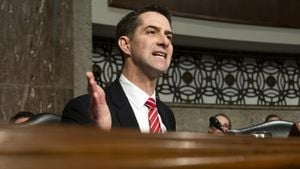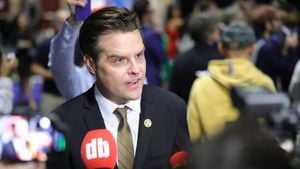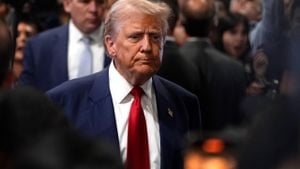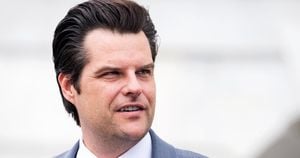Canadian Prime Minister Justin Trudeau recently stirred up considerable attention during his media briefing, where he labeled one of his officials as "criminal" for allegedly leaking unfounded claims linking India's Prime Minister Narendra Modi and Foreign Minister S. Jaishankar to the assassination of Hardeep Singh Nijjar, a prominent Khalistani separatist leader, last year.
Responding to queries about the reports, Trudeau expressed his frustration over information leaks, saying, "We have seen, unfortunately, criminals leaking top-secret information to the media have consistently gotten those stories wrong...That is why we conducted a national inquiryinto foreign interference, which has shown these leaks are unreliable on top of being criminal." Such remarks only add to the crescendo of tensions brewing between the two nations.
The allegations were sparked by articles from reputable outlets, particularly The Globe and Mail, which reported the Canadian security agencies believed Modi was aware of violent operations targeting separatists operating from Canada. According to these claims, both Jaishankar and India's National Security Adviser, Ajit Doval, were purportedly informed about these plots as well.
Trudeau's advisers were quick to debunk these accusations, asserting, "The Government of Canada has not stated, nor is it aware of evidence linking Prime Minister Modi, Minister Jaishankar, or NSA Doval to any serious criminal activity within Canada. Any suggestion to the contrary is both speculative and inaccurate,'' stated Nathalie Drouin, Trudeau’s intelligence adviser. Such dismissals seemed to quell some of the immediate speculation, but the political damage had already begun to spread.
Relations between Canada and India have been under strain since Trudeau publicly accused Indian agents of being involved in Nijjar's killing during the G20 Summit last year. This incident has led to greater diplomatic isolation, with both countries maintaining only 15 diplomats on each other's soil, severely affecting consular services.
Trudeau's statements reflect the heightened atmosphere against the backdrop of the complex geopolitics. With the allegations of 'vote-bank politics' conspiring against Canada's Indian community, New Delhi has not hesitated to retort, categorizing Ottawa's claims as "absurd" and politically motivated. By accusing Canada of harboring criminals who threaten India's national security, the dialogue has, unfortunately, devolved from intended diplomacy to outright contention.
Adding fuel to the fire, earlier this month, Canadian law enforcement apprehended Arshdeep Singh, known widely as Arsh Dalla—a wanted figure connected loosely to Nijjar. Leaders charged him with involvement in multiple serious offenses, including assassination, targeted killings, and extortion, all tied to the notorious Khalistani Tiger Force.
This grave predicament encapsulates not only the immediate fallout from the allegations surrounding Nijjar's death but also the far-reaching consequences for diplomatic relationships. The situation reveals Australia, which has been continuously identified as providing cover for dissident movements, is now caught at the center of international geopolitics as it navigates between empowering its diaspora and maintaining international peace.
Therefore, as the dust settles over Trudeau's strong-worded accusations, the broader geopolitical narratives will likely dictate the course of future dealings between India and Canada. The and the public's response remains to be seen as both countries reconcile with these burgeoning diplomatic challenges.
To some degree, such confrontations underline the dwindling faith global audiences have on the reliability of governmental narratives—evident through Trudeau's own unwillingness to stand by his officials. His lofty declarations about integrity and security highlight the sensitive interplay between national safety and international rapport.
Through these narratives, it seems visible institutional structures, such as government inquiries and criminal labels, only indicate the rush to cling to power narratives, yielding insights not just about the relations between two countries but also about the broader idea of governance.



